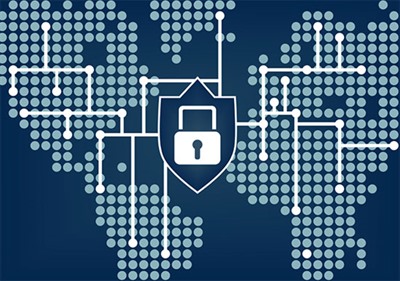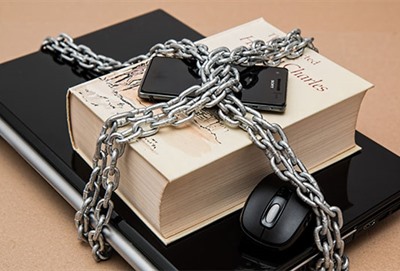
It’s hard to miss the term VPN these days. Practically everyone is using one. VPN stands for Virtual Private Network. It’s a network, like the internet. However, unlike the internet, which is a massive public network, a VPN is a private one. VPNs are used by professionals, businesses, and just regular folk who want to stream movies on the weekends. VPNs are offered by various providers. You can buy a VPN package, download the software, and pay a monthly or an annual subscription fee to use for as long as you want.
If you have heard of VPNs, but haven't used one before, you may wonder what all the fuss is about. Do you need a VPN service? It depends on your requirements. Here is a list of advantages of VPN network (50 AMSV) that you can refer to find out if you should pay for a subscription:
1. Stream Content Regardless of Your Location
Geo blocks, or geographical restrictions, are commonly used by various regional websites, especially media sites like Netflix, Hulu, and BBC iPlayer. VPNs, famously, can bypass these restrictions. Say for example that you are a Briton who loves streaming content on BBC iPlayer. Then you take a summer vacation to Japan, where you cannot access most of your shows on BBC iPlayer. You may get an error message saying “this video is not available in your region.” This is geo blocking.
Geo blocking happens mainly because of copyright and licensing issues. Streaming services like Netflix need to buy regional licenses to make media content available in different regions. That’s why you can access House of Cards in the U.S. but not India. All services prioritize which licenses to buy depending on consumer demand. For example, if Orange is the New Black has a considerable audience in Australia, Netflix will purchase the license for distributing the show in the region. If not, Netflix will don't bother with it, and everyone who visits the region won't have access to the show. Media distributors say that it's not possible yet to make content globally available, yet. Until it happens, movie and TV show lovers will have to stick to VPNs.
VPNs connect to the internet in a private capacity as mentioned above. Essentially, the system creates what’s called VPN “tunnels” to access the net. When you download VPN software, you can choose where these tunnels are “dug” from. When you log in, you will get a list of servers, the hardware that connects users to the internet. You can choose the location of the server to generate an IP address. The IP address is a unique identifier for your device on a network. The IP address also gives away your location, which is how websites identify your country to block you in particular regions. When you can choose a server using a VPN, you can pick a country the sites allow, thus bypassing geo blocks. For example, when you are in India, you can use a VPN to connect to an American server to get access to the U.S. Netflix library and watch House of Cards.
2. Overcome Censorship in Your Country

Regardless of what you think about censorship, you probably find it annoying on certain occasions. Censorship can occur in various degrees and can be imposed by different institutions. Censorship can be minor, as in the case of an office blocking access to Facebook. Censorship can also be a serious violation of freedom of speech and right to information, as in the case of the government like China’s blocking access to certain news websites or blogs. You can use a VPN to get past all such censorship to get access to content any time you want from anywhere.
The same tech that allows VPNs to bypass geo blocks allows you to bypass country restrictions. For example, if China is blocking Twitter, you can use a VPN to access to a non-Chinese server to get access to the social media site. If your university doesn’t want you to access YouTube while in class, you can use a VPN to bypass those restrictions in the same manner. If you live in a country where certain news websites or adult websites are blocked by local ISPs upon government request, you can use a VPN to get access without leaving the country
3. Connect to Public Wi-Fi- Safely
One of the many perks VPNs allow is the extra privacy when browsing the internet. VPNs encrypt all connections. Encryption is a way of jumbling up data so no one can read the information without the right key. Encryption is like a secure envelope for your information. Even if a malicious hacker steals this envelope, there will be no way to understand the information inside. Your regular internet connection is not typically considered secure unless you are using a router with encryption protocols. A VPN connection, on the other hand, offers additional protection.
You can be assured that no one can pry in your internet connection when you use a VPN. A VPN can secure your internet connection regardless of the device you are using. For example, you can use a VPN to secure your access to a public Wi-Fi connection. This can make life a lot easier for those who travel a lot. Public Wi-Fi is notoriously teeming with hackers, data thieves, and malware. A VPN can get you emergency access without worrying about your connection being compromised.
4. Leave No Trace of Your Online Presence

Just like walking on sand, your online activity can leave footprints that hackers and malicious users can capitalize on.
You may occasionally visit websites that can be considered embarrassing if someone finds out. If you are a journalist or an activist living in a country where censorship is rampant, then leaving an online trace could be a matter of life and death. Some VPN software can remove your online activity from servers. When you connect to the internet, the websites you visit are logged onto to a server. Some VPN service providers delete these records on a daily or monthly basis, which means no one else can track where you have been online. It’s important to note here that not all VPN providers have no-log policies. Before you purchase a service, be careful to inquire about the provider’s logging policy. Also, keep in mind that most governments have the authority to request log data from VPN service providers. If they keep any, they will have to give the logs. But VPNs with no logs can show that no logs have been kept.
5. Get Additional Malware Protection for Smartphones
Most computers have virus scanners, but pretty much all mobile connections are still insecure. This is a serious concern considering that most people now browse the web, shop online, and download apps onto smartphones and tablets. This leaves mobile devices highly vulnerable to hacks. Having a VPN can significantly reduce your vulnerability to a mobile hack. VPNs don’t make your mobile device immune from malware, viruses, or hacks. But most providers offer malware scanners for mobile connections, which offers an extra layer of protection when you are connecting away from home.
6. Create Virtual Workplaces and Work from Anywhere in the World

VPNs are private connections. That means you can create networks with people you trust to transmit data securely. This is most advantageous to businesses with employees around the world. If you want to connect to a work colleague from abroad, you will need a VPN to do so securely and efficiently. Most big corporations use VPNs to transmit data between overseas or regional offices without exposing the information to hacks. Small businesses can use a commercial VPN to do the same at an affordable rate. Freelancers can benefit greatly by setting up virtual workplaces to connect regardless of location. If you are a globetrotter, VPNs can facilitate secure networking. As data sent over VPN connections are encrypted, you will be at little risk of a hacker getting their hands on top secret business information.
7. Bypass Government Surveillance
Government surveillance programs, such as those run by NSA, have become particularly concerning to many netizens who value their privacy. If you belong to this group, you can use a VPN to browse the web practically anonymously and avoid the snoopers. VPNs encrypt data and can mask your location as mentioned above. On top of that, some can delete data logs. This makes VPNs uniquely suitable to avoid government surveillance programs that crawl through connections and websites. Be careful though that some free or limited VPN packages may not offer the extra protection you need to avoid snoopers. You may have to purchase premium accounts to enjoy this perk.
As you can see, VPNs offer many perks. If you are a student, a globe-trotting freelancer, and avid streaming media consumer, or a small business owner with overseas business, then you can benefit greatly by using a VPN service
Author, Christopher Jan Benitez
BACK TO NEWS